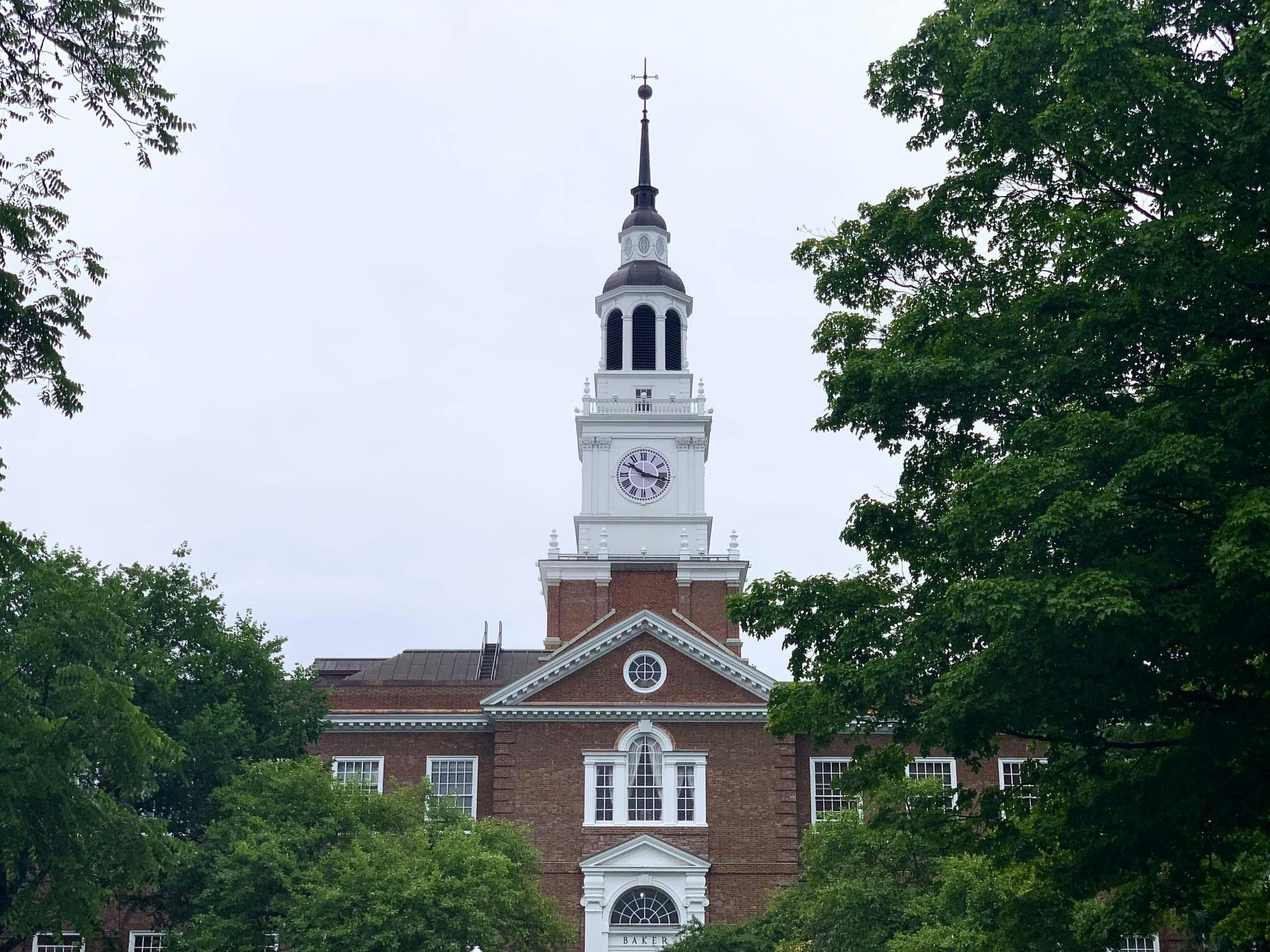As the spring term comes to an end, students across a number of academic departments are presenting their senior theses, marking a return to in-person thesis presentations for the first time since 2019. Seniors across a variety of departments work closely with professors on theses, though timelines differ between departments.
During the fall term, physics and astronomy department chair Kristina Lynch said she hosts a thesis writing workshop for seniors interested in completing a senior thesis. She said the workshop covers how to define a research topic and write an abstract, noting that thesis abstracts must be submitted before the end of the fall term of a student’s senior year.
According to Lynch, the department of physics and astronomy initially had 15 students interested in completing a thesis, but only 10 students have completed the process.
Ben Squarer ’22, one of the 10 students still working on a thesis, said he researched quantum tunneling and nuclear fusion for his project. When Squarer was a sophomore, he said he used the Office of Undergraduate Advising and Research to connect with physics and astronomy professor Roberto Onofrio. Through working with Onofrio on the reactivity of nuclear plasmas — which he said are a collection of atomic nuclei that are undergoing nuclear fusion reactions — Squarer said he was able to narrow down his thesis topic during his junior winter and spring.
“With [Onofrio’s] research experience, he can detect which topics are actually worth researching within the time constraints of a thesis,” Squarer said. “He knows how to research in a focused and efficient way.”
Computer science major Suraj Srivats ’22 said he changed the topic of his thesis three times, landing upon a fourth idea. The title of his thesis is now “Language Models are Multilingual Chain of Thought Reasoners,” and it involves proving empirically that large-scale deep learning models on computers can solve multiple multilingual tasks, including math word problems.
Suraj noted that he changed the topic of his thesis after hitting multiple “dead ends,” and navigated the process with the advice of advisors and friends.
Squarer said for theses in the physics and astronomy department, seniors submit a draft of their thesis a week in advance of their presentation. The thesis committee then prepares feedback that seniors can incorporate into their thesis before graduation.
According to government department chair Benjamin Valentino, government students begin considering a thesis project during their junior winter, eventually taking three thesis level courses their senior year to complete the thesis.
Valentino noted that some students begin working on their thesis over the summer so that in the fall they can “hit the ground running.” He said the first chapter of a student’s senior thesis is due at the end of the fall term, adding that most of the research occurs in the winter while most of the writing happens in the spring. Finally, he said that students present and defend their theses in May.
According to the government department’s thesis presentation schedule, there are 14 seniors who have completed a thesis. Valentino said that presentations consist of a 30-minute presentation with another 30-minute Q&A session from the audience. Then, there is a “defense proper” in which the student and three faculty members, all of whom have read the thesis, will discuss details of the thesis for an hour.
Anya Sorensen ’22, who presented her government thesis, “Insurgency in the Name of God: Analyzing Islamic State Strategy in Iraq from 2016-2020,” on May 16, said the defense proper involved questions about her research methodology and other potential limitations of her dataset.
“I knew there would be questions about my dataset and its limitations, so I got to know my data inside and out as the best way to answer questions,” Sorensen said.
In 2020 and 2021, senior thesis presentations were delivered virtually, according to Valentino.
“It was great to have some parents, friends and professors from other courses in the room to show our students just how proud we are of them,” Valentino said.
Lynch said that the physics and astronomy department also saw some changes to its senior thesis process due to the COVID-19 pandemic. According to Lynch, the department had “moved away” from hardware projects because of limited clearance to enter the lab during the pandemic. During this time, students shifted from experimental hardware work to projects focused on analysis.
This year, Valentino said he is the co-director of senior theses in the government department with fellow government professor Lucas Swaine. Valentino said he has directed the department’s honor program since 2004, and he estimated that he has read over 200 theses over the years.
“Once you finish writing an honors thesis, you really are a true expert in the subject,” Valentino said. “I learned as much from those theses as I would if we had a visiting professor come and give a talk in our department.”

Arizbeth Rojas ’25 is a managing editor of the 181st directorate from Dallas, TX. When she’s not listening to DJ Sabrina the Teenage DJ or planning her next half marathon, you can find her munching on a lox bagel.




